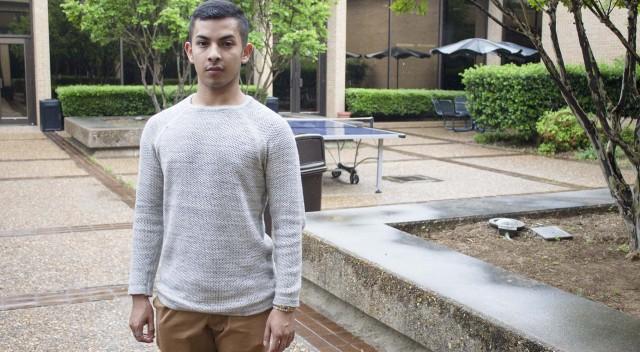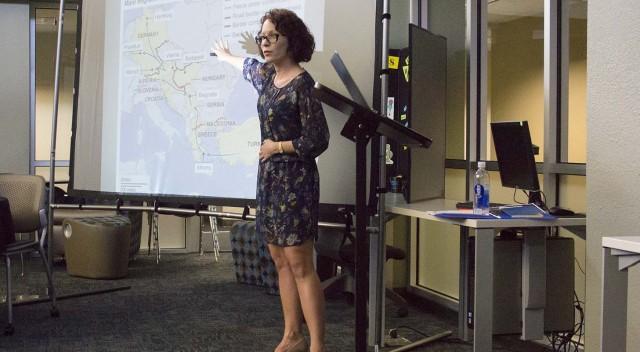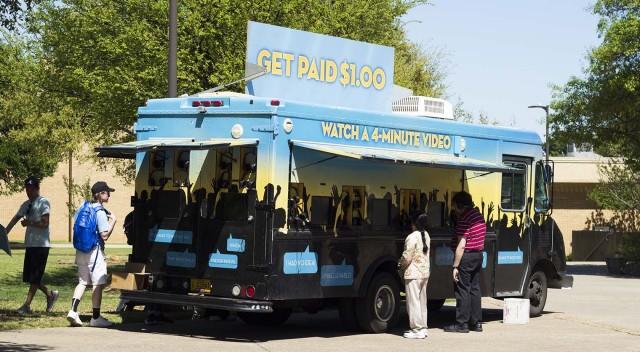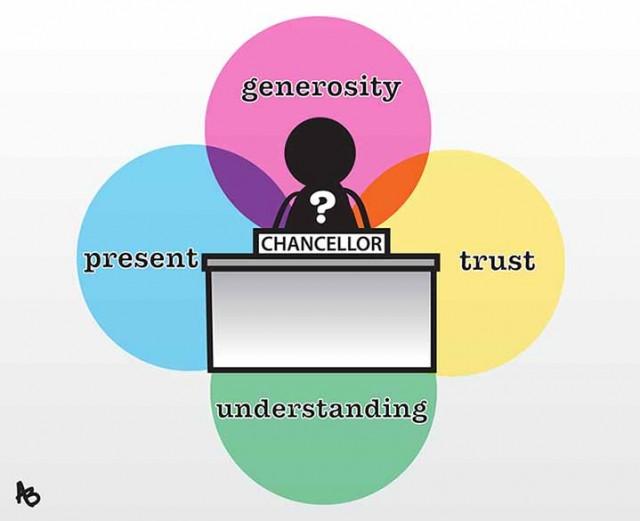By Dylan Leverett/ reporter
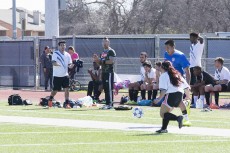
For some, soccer is an unfamiliar sport. But for a SE instructor and his club, soccer is a passion.
Jose Velarde, psychology and sociology instructor, sponsors the psychology and soccer clubs on SE Campus. Velarde’s passion for soccer began early.
“I started playing when I was 4 years old,” he said. “I started watching soccer with my dad. My dad’s from Peru. I’ve come from a context where soccer is more important than in the U.S., but it’s growing.”
Many of Velarde’s earliest memories with his father center around athletics and futbol.
“It’s like my mom knew when you had your futbol game, she just left it alone, and she’s not even South American and she knew Sundays were for soccer,” he said “What’s that funny hierarchy I’ve heard? ‘Futbol, then God, then your dog, then your wife.’ Something like that. It’s a funny hierarchy, but that’s what it’s like.”
Both his mother and father were immigrants from Finland and Peru, respectively. After living his formative years in Australia, Velarde’s father was granted a permanent residency offer in the U.S. After spending a few months in Connecticut, his father was offered a job, the family moved to DFW, and Velarde went to L.D. Bell High School in Hurst.
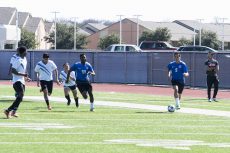
Photos by Hayden Posey/The Collegian
“The only thing I knew about Texas was pretty stereotypical, you know. Cowboys and Dallas,” he said.
After high school, Velarde then did two years of basics at TCC and got his bachelor’s in psychology and later a master’s in experimental psychology from the University of Texas at Arlington.
After graduating, Velarde started looking for jobs and, on a whim, decided to apply at TCC. As he headed to his job interview, his car broke down. He called and asked to reschedule, and the person in charge of hiring agreed. When they finally interviewed him, Velarde was offered a dual-credit teaching job.
“That’s how I got my foot in the door, so kind by accident and pure luck,” he said. “He was well in his rights to say, ‘Hey, you weren’t here for your appointment, I don’t care what your reason is. We’ll hire someone else.’”
Although Velarde sought a psychology career in research, he found teaching was more enjoyable.
“When I got in the classroom, I’d say first or second semester, and I was like, ‘I kinda dig this. I never thought about this. It’s kinda cool,’” he said.
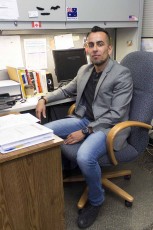
The son of a traveler, Velarde has travel in his genes and spends many of his summers on vacation. He has been to many countries, including Brazil, where he experienced the 2014 World Cup.
“Brazil is an amazing place, amazing people, right, if you were to go on vacation. But if you were like the biggest soccer fan and you have that passion and combine that with futbol, oh, man,” he said. “It was a great experience all around.”
The magnitude of fans on Rio de Janeiro’s Copacabana beach was especially astounding, he said.
“They had the fan zone, and they had big screen TVs,” he said. “It was insane just to be on that beach with so many people.”
Velarde believes the recent growth of soccer fandom in U.S. is due to the sport’s simplicity.
“The rest of the world can’t be wrong,” he said. “It’s so simple, it’s called the beautiful game. All you need is a ball.”
The soccer club is now Velarde’s passion. He hopes to one day help members, who meet 3-4:30 p.m. every Friday at the track behind the testing center, get scholarships and possibly create a legitimate team.
“A big thing here at TCC is student engagement,” he said. “A lot of research supports the idea that students who are engaged with their campus, their community tend to do better. That’s one of the big things with the clubs, whether that is feasible at TCC, but I think of it as a long-term goal.”
Velarde realizes many legal and financial hurdles must be overcome first. But he cites colleges like Richland and Mountain View in Dallas that already have athletic programs.
“I think they should have a chance,” he said. “They may get a scholarship here and have a walk-on and go on to a four-year college and get a full ride. Right now, there’s not a chance to do that here at TCC.”
Velarde now offers members a glimpse at the techniques college soccer coaches use to train players as well as stressing the importance of balancing athletics and education.
“I’m just giving them a taste,” he said. “It’s so intricate, and we’re not anywhere near that level here, but we can at least get the ball rolling.”
Club member Michaela Santos joined because it was something familiar in an unfamiliar atmosphere.
“I chose soccer because I’ve been playing since I was 6 or 7 years old in England,” she said. “When I first moved to Texas, I didn’t know anyone here but my family … so I joined soccer, and I felt comfortable playing something I love.”
Godwin Ukka pointed out the benefits he has noticed.
“I can run miles without sweating, and my game speed has improved a lot,” he said. “Playing in school has given me a feel for what playing at a university will feel like, and by that I mean in terms of managing practice, schoolwork and other responsibilities.”
Peter Nwaoba hopes more students will join.
“The club is not going to be a two-semester thing and then it’s over,” he said. “However, without players, there can be no club, so he needs all the help he can get.”
Velarde feels it will be a long process, but results will get the club noticed.
“That’s the goal, to build it slowly so I can go to administration and say ‘Hey, we’ve had this outcome and maybe 75 percent of students in the soccer club are on the honor roll or whatever.’ That’s the stuff that gets administrators to say ‘OK, maybe we can justify that $10,000 or maybe we can budget money for a bus to scrimmages or games,’’’ he said.


























